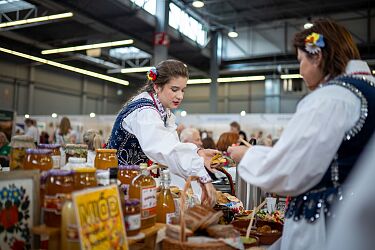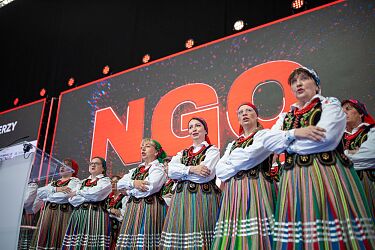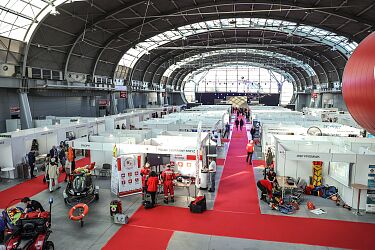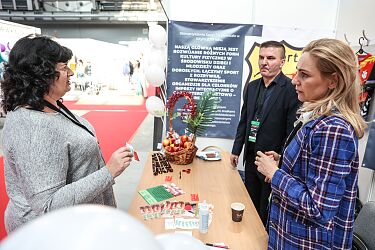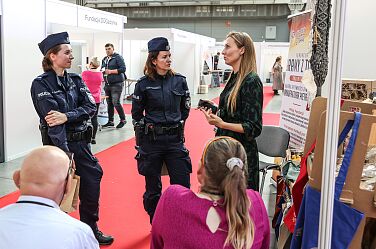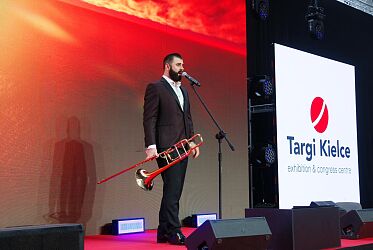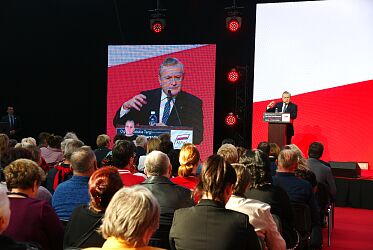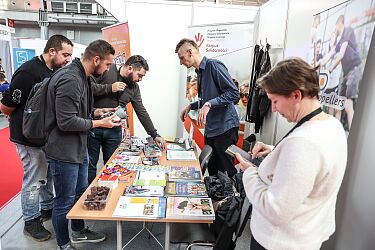News
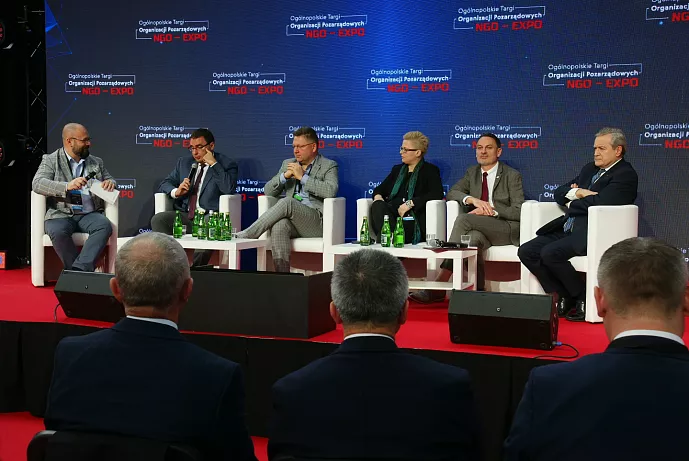
Civic organisations in times of crisis - cooperation instead of competition
The discussion panel on the second day of the NGO-EXPO Fair brought together: Professor Piotr Gliński, Deputy Prime Minister, Chairman of the Committee for Public Benefit, Wojciech Kaczmarczyk, Director of the National Freedom Institute - Centre for Civil Society Development, Mariusz Brelski, President of the Skała Lasocin Association, Kamil Rybikowski - Vice President of the Board of the Confederation of Non-Governmental Initiatives of the Republic of Poland and Justyna Ochędzan from the Wielkopolska Coordination Council of the Union of NGOs. The panellists discussed the functioning of non-governmental organisations during the crisis and the need for cooperation.
- NGOs need to be professionalised. In crises, in sensitive areas, such as flood or earthquake zones, you need a dedicated official who represents the Polish state, who is prepared to organise all services, NGOs, and volunteers who freely join in. Such an officer must be professional in such situations - said Professor Piotr Gliński.
The talks presented the idea of including non-governmental and volunteering organisations in the crisis management scheme. 1997 and the current situation on the border were also mentioned. The social activists were first responders. Non-governmental organisations were the first to act, and then systematic work with the public administration followed.
Kamil Rybikowski, Vice-President of the Management Board, talked about partnerships related to the EU funds programming and the experiences of the Confederation of Non-Governmental Initiatives of the Republic of Poland in influencing politics, partnership, the civic budget development.
- All sectors, public administration, non-governmental sector and private enterprises must cooperate. Such cooperation proved successful, especially in moments of crisis. Public consultations before creating any kind of regulations, universally binding and executive acts at the local government, government or EU level are vital. Thus each entity can air out their opinion, emphasised Kamil Rybikowski.
- Partnership starts with listening to each other, developing mutual trust and critical assessment. This is what consultations are for - to get to know others’ points of view. The Social Economy Act is such example. The Act was harshly criticised by the Public Benefit Works Council of the previous term. Hence it was this kind of critical assessment that triggered the changes later introduced by the Ministry of Family and Social Policy. The impulse from activists, leaders of non-governmental organisations played a similar role - added Wojciech Kaczmarczyk Director of the National Freedom Institute - Centre for Civil Society Development.
Mariusz Brelski, President of the Skała Lasocin Association, talked about ease of cooperation when it comes to consultations and programming with public administration.
- This is a question of local leaders; whether they are accepted at the local level. Much depends on the village, the commune or the poviat council as they offer a strong support for their non-governmental organisations. This support means 100% success in cooperation. Not only is this a matter of placing an advertisement on the so-called BIP Public Information Bulletin, but this is also a matter of providing information to the lowest level of the grass-root movement. Only then do organisations find the necessary information. Much depends on the local government and its idea to consult a program - said Mariusz Brelski.
- Collaboration boils down to a human factor and how much we are ready to listen to each other, to to the voice of communities that do not have a strong impact. In the European Economic and Social Committee, we work together with employers, trade unions, as well as non-governmental organisations, representatives of rural farming communities and liberal professions. This dialogue model is optimal when we all discuss together - emphasised Justyna Ochędzan from the Greater Poland Coordination Council of the Union of NGOs
The meeting culminated with a quote from Ernest Hemingway. “Now is no time to think of what you do not have. Think of what you can do with that there is”
NGO-EXPO offered the representatives the opportunity to meet. The show brought together establishments, foundations, universities of the third age, senior clubs and development support societies.
(MS)

